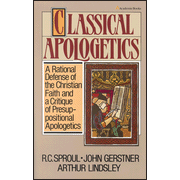Archive
Justification-Salvation is by Grace Through Faith
by J.I. Packer
Clearly no one is justified before God by the law, because, “The righteous will live by faith.” GALATIANS 3:11
The doctrine of justification, the storm center of the Reformation, was a major concern of the apostle Paul. For him it was the heart of the gospel (Rom. 1:17; 3:21-5:21; Gal. 2:15-5:1) shaping both his message (Acts 13:38-39) and his devotion and spiritual life (2 Cor. 5:13-21; Phil. 3:4-14). Though other New Testament writers affirm the same doctrine in substance, the terms in which Protestants have affirmed and defended it for almost five centuries are drawn primarily from Paul.
Justification is a judicial act of God pardoning sinners (wicked and ungodly persons, Rom. 4:5; 3:9-24), accepting them as just, and so putting permanently right their previously estranged relationship with himself. This justifying sentence is God’s gift of righteousness (Rom. 5:15-17), his bestowal of a status of acceptance for Jesus’ sake (2 Cor. 5:21).
God’s justifying judgment seems strange, for pronouncing sinners righteous may appear to be precisely the unjust action on the judge’s part that God’s own law forbade (Deut. 25:1; Prov. 17:15). Yet it is in fact a just judgment, for its basis is the righteousness of Jesus Christ who as “the last Adam” (1 Cor. 15:45), our representative head acting on our behalf, obeyed the law that bound us and endured the retribution for lawlessness that was our due and so (to use a medieval technical term) “merited” our justification. So we are justified justly, on the basis of justice done (Rom. 3:25-26) and Christ’s righteousness reckoned to our account (Rom. 5:18-19).
God’s justifying decision is the judgment of the Last Day, declaring where we shall spend eternity, brought forward into the present and pronounced here and now. It is the last judgment that will ever be passed on our destiny; God will never go back on it, however much Satan may appeal against God’s verdict (Zech. 3:1; Rev. 12:10; Rom. 8:33-34). To be justified is to be eternally secure (Rom. 5:1-5; 8:30).
The necessary means, or instrumental cause, of justification is personal faith in Jesus Christ as crucified Savior and risen Lord (Rom. 4:23-25; 10:8-13). This is because the meritorious ground of our justification is entirely in Christ. As we give ourselves in faith to Jesus, Jesus gives us his gift of righteousness, so that in the very act of “closing with Christ,” as older Reformed teachers put it, we receive divine pardon and acceptance which we could not otherwise have (Gal. 2:15-16; 3:24).
Read the entire article here.
Justification by Faith Alone: Nothing in My Hand I Bring
The Diet of Worms convened on April 18, 1521 to deal with one of the most pressing issues in the Holy Roman Empire: to deliberate what to do with a troublesome monk named Martin Luther. It had only been 3 ½ years since Luther had nailed his 95 theses to the church-door in Wittenburg. In that short time, he had sparked a great controversy within the Roman Catholic Church. Some of the most controversial of Luther’s theses were those in which he asserted that God justifies sinners based upon the merits of Jesus Christ alone and received by faith alone.
Martin Luther vs The Church of Rome
In contrast to Luther, the Roman Catholic Church taught that a sinner’s justification was not based upon another’s righteousness, but that it was based upon the inherent righteousness of the sinner. The Church essentially taught a salvation which was based upon works. And they refused to be corrected by Luther. Therefore, after administering much political pressure on the Emperor, Charles V, a diet was called to determine what to do with this controversial monk named Martin Luther.
Read the entire article here.
Federal Vision, New Perspective & Justification [Audio]
Dr. Fred Malone, Justification and the New Covenant
Mitchell Jones, The Testimony of a Pardoned Sinner (Psalm 32)
Dr. Sam Waldron, The New Perspective on Paul
Jarrett Downs, Justification and the Ordo Salutis
Stephen Means, A Critique of the Federal Vision
Steve Garrick, Dispensationalism and Justification
Dr. Sam Waldron, The Ungodly Justified by Faith Alone
Todd White, Assurance and Justification
Dr. Sam Waldron, Why Is Faith Alone the Instrument of Justification
Roundtable, Question and Answer Session
Source [Confessingbaptist.com]
The Wednesday Word: What If? Pt 1
My Aunt Eileen died just a few days ago. She was my Father’s younger sister and she will be greatly missed by friends and family.
Death is a sorrowful time for those left behind. However, in spite of the sorrow, for the believer, death and the grave have lost their sting and victory. This is because of the certainty of the Resurrection.
What if, however, Jesus has not risen from the grave?
I’ve recently read some Christian writers who explain that, even if they discovered Jesus did not rise from the dead, they would continue to follow Him. After all, they reason, as they look around at the field of religious Gurus from human history, Jesus is by far the superior one.
Personally, I think that kind of thinking is daft! Indeed, in 1 Corinthians 15:12-21, Paul lets us know just how silly this mentality is. In fact, in 1 Corinthians 15, Paul gives us several awful things that would be true if Christ had not risen from the grave.
The first of these is that, if Christ is not risen, preaching would be an exercise in futility (verse 14). I know there are some who would readily endorse that sentiment at the best of times. However, notwithstanding their views on preaching, if there is no Resurrection, the minister is wasting his time being in the pulpit. If Christ is still in the grave there is no good news. No Gospel. The preacher is just a wind-bag!
Also, according to verse 14, if there is no resurrection, our faith is vain. At the end of the day, why would we put faith in a dead Messiah? Faith, as you remember, is only as good as its object. Faith itself saves no one. It is Jesus who saves and a dead Jesus is useless in this matter of salvation. The ghastly truth is that, if Jesus is still in the grave, He can bring no one to heaven. A dead man can do nothing for us!
Now here’s another thing. If Jesus has not risen from the grave, then the disciples were awful liars (v15-16). These men went everywhere telling people they had seen the risen Christ. They had touched and handled Him, they claimed (1John 1:1). But, if Christ was not raised from the dead then they were perjurers. Remember this, if Christ was not risen from the dead, the apostles weren’t just mistaken, they were malicious. They were part of a gargantuan conspiracy to deceive mankind!
So then, were the Apostles liars? If they were, why did they lie? ‘Oh’ says someone, ‘just like any of these modern preachers, they lied for gain.’ But what gain did they have? It certainly was not financial. And, furthermore, consider how they died. They all (except for John) died as martyrs. They were tortured and brutally executed. There’s no worldly gain in that.
By the way, liars and martyrs are not cut from the same cloth. Only deranged lunatics would embrace martyrdom to further a deliberate lie.
But, if Christ is still in the grave, then indeed, the Apostles were liars, hypocrites and deceivers. That would follow then that we cannot read the New Testament since it was written by these same frauds. If Christ is not risen, we, therefore, have no New Testament!
But it gets worse than that; if Christ is yet in the grave, then we have no hope of forgiveness (verse 17). God cannot overlook sin, He must punish it! God is Holy and His holiness demands the death of the sinner. Either our sin has been punished on Christ at the cross or we will be punished for it in Hell. But, if Christ has not been raised from the grave it means that the Father has not accepted the sacrifice of Calvary. That means we are lost. It matters not how sincere and earnest we are. We are yet in our sins. We will perish!
But, here’s the good news. Christ was delivered for our offenses and raised again for (because of) our Justification (Romans 4:25). He is alive. His blood has secured us, His sacrifice has been accepted and He is alive forevermore.
And that’s the Gospel Truth!
To be Continued…….
Miles Mckee
Whether each believer has his own single angel cannot be concluded from scripture
 A kind of prefects over kingdoms and provinces, but specially the guardians of the elect. Not certain that every believer is under the charge of a single angel. Enough, that all angels watch over the safety of the Church.
A kind of prefects over kingdoms and provinces, but specially the guardians of the elect. Not certain that every believer is under the charge of a single angel. Enough, that all angels watch over the safety of the Church.
7. Whether or not each believer has a single angel assigned to him for his defense, I dare not positively affirm. When Daniel introduces the angel of the Persian and the angel of the Greeks, he undoubtedly intimates that certain angels are appointed as a kind of presidents over kingdoms and provinces. Again, when Christ says that the angels of children always behold the face of his Father, he insinuates that there are certain angels to whom their safety has been entrusted. But I know not if it can be inferred from this, that each believer has his own angel. This, indeed, I hold for certain, that each of us is cared for, not by one angel merely, but that all with one consent watch for our safety. For it is said of all the angels collectively, that they rejoice “over one sinner that repenteth, more than over ninety and nine just persons which need no repentance.” It is also said, that the angels (meaning more than one) carried the soul of Lazarus into Abraham’s bosom. Nor was it to no purpose that Elisha showed his servant the many chariots of fire which were specially allotted him.
There is one passage which seems to intimate somewhat more clearly that each individual has a separate angel. When Peter, after his deliverance from prison, knocked at the door of the house where the brethren were assembled, being unable to think it could be himself, they said that it was his angel. This idea seems to have been suggested to them by a common belief that every believer has a single angel assigned to him. Here, however, it may be alleged, that there is nothing to prevent us from understanding it of any one of the angels to whom the Lord might have given the charge of Peter at that particular time, without implying that he was to be his, perpetual guardian, according to the vulgar imagination, (see Calvin on Mark 5:9,) that two angels a good and a bad, as a kind of genii, are assigned to each individual. After all, it is not worthwhile anxiously to investigate a point which does not greatly concern us. If any one does not think it enough to know that all the orders of the heavenly host are perpetually watching for his safety, I do not see what he could gain by knowing that he has one angel as a special guardian. Those, again, who limit the care which God takes of each of us to a single angel, do great injury to themselves and to all the members of the Church, as if there were no value in those promises of auxiliary troops, who on every side encircling and defending us, embolden us to fight more manfully.
John Calvin-Institutes of the Christian Religion-Book I-Chapter 14-Henry Beveridge Translation
Why is Denying Justification such a Serious Error?
Posted on February 19th, 2015, by Tom Hicks
The doctrine of justification by faith alone on the ground of Christ’s imputed righteousness remains under direct attack in various quarters. As someone who wrote his PhD dissertation on the doctrines of justification in Richard Baxter and Benjamin Keach, I am convinced that modifying the biblical doctrine is a serious theological error. As a pastor of a local church, I have observed how the doctrine of justification humbles the proud, strengthens the fainthearted, gives assurance to the fearful, encourages vulnerable and motivates self-sacrificing love. To deny this doctrine is to deny the very heart and power of the gospel. May the Lord bring theological clarity on this doctrine for the sake of His own glory and for the good of His beloved bride.
Read the entire article here.
A Critique of the New Perspective: Eight Audio Lectures
A Critique of the NPP, Part 1 – Jeff Smith
A Critique of the NPP, Part 2 – Jeff Smith
A Critique of the NPP, Part 3 – Jeff Smith
A Critique of the NPP, Part 4 – Jeff Smith
A Critique of the NPP, Part 5 – Jeff Smith
A Critique of the NPP, Part 6 – Jeff Smith
A Critique of the NPP, Part 7 – Jeff Smith
A Critique of the NPP, Part 8 – Jeff Smith
For further Study:
An Overview and Critique of the New Perspective on Paul’s Doctrine of Justification by Jeffrey Smith
Source [Confessingbaptist.com]
Example 5-Of how the Old Testament is cited in the New
 In Galatians 4:24, the inspired pen of Paul informs us that certain domestic incidents in the household of Abraham “are in allegory,” that Hagar and Sarah represented “the two covenants,” and that their sons prefigured the kind of worshippers those covenants were fitted to produce. But for that Divine revelation unto and through the apostle we should never have known that in those facts of history God had concealed a prophetic mystery, that those domestic occurrences prophetically shadowed forth vitally important transactions of the future, that they illustrated great doctrinal truths and exemplified the difference in conduct of spiritual slaves and spiritual freemen. Yet such was the case, as the apostle showed by opening to us the occult meaning of those events. They were a parable in action: God so shaped the affairs of Abraham’s family as to typify things of vast magnitude. The two sons were ordained to foreshadow those who should be born from above and those born after the fles —that even Abraham’s natural descendants were but Ishmaelites in spirit, strangers to the promise. While Paul’s example here is certainly no precedent for the expositor to give free rein to his imagination and make Old Testament episodes teach anything he pleases, it does intimate that God so ordered the lives of the patriarchs as to afford lessons of great spiritual value.
In Galatians 4:24, the inspired pen of Paul informs us that certain domestic incidents in the household of Abraham “are in allegory,” that Hagar and Sarah represented “the two covenants,” and that their sons prefigured the kind of worshippers those covenants were fitted to produce. But for that Divine revelation unto and through the apostle we should never have known that in those facts of history God had concealed a prophetic mystery, that those domestic occurrences prophetically shadowed forth vitally important transactions of the future, that they illustrated great doctrinal truths and exemplified the difference in conduct of spiritual slaves and spiritual freemen. Yet such was the case, as the apostle showed by opening to us the occult meaning of those events. They were a parable in action: God so shaped the affairs of Abraham’s family as to typify things of vast magnitude. The two sons were ordained to foreshadow those who should be born from above and those born after the fles —that even Abraham’s natural descendants were but Ishmaelites in spirit, strangers to the promise. While Paul’s example here is certainly no precedent for the expositor to give free rein to his imagination and make Old Testament episodes teach anything he pleases, it does intimate that God so ordered the lives of the patriarchs as to afford lessons of great spiritual value.
We have, above, designedly selected a variety of examples, and from them the diligent student (but not so the hurried reader) will discover some valuable Divine hints and helps on how the Scriptures are to be understood, and the principles by which they are to be interpreted. Let them be reread and carefully pondered.
Arthur W. Pink-Interpretation of the Scriptures












Charles Spurgeon’s Letters-Letter 10
CAMBRIDGE, Nov. 12, 1850.
MY DEAR MOTHER, —
I have just received the Maidstone Journal, in which you will see an advertisement of Mr. Walker’s sale. In one of my late letters to Aunt (having heard you speak of her as somewhat trusting to works), I ventured, as a babe in grace, to touch upon the subject, — I trust, with becoming prudence as well as boldness. I then received a letter from Uncle, — a long one, too, — containing much good and even religious advice; of course, speaking as (Oh, how I desire it!) a Christian should speak. Mixed up with it, there was a tincture of naturalism or reason. I have therefore ventured on another letter, and have, I trust, said, though feebly, what a boy should say to a dying Uncle. False fear should never prevent us from being faithful with men walking on the confines of the grave. Could I make religion more the business of my life, how happy should I be I am conscious I do not live up to my duties or my privileges, and did I not feel sure that Jesus will certainly complete what He has begun, I should never think of reaching Heaven; but, by His might, I would look confidently for it.
I have found a little work here. I have spoken twice to the Sunday-school, and am to read an Essay on some subject connected with Sunday-schools at the next meeting of the Teachers’ Institute for the town. I only do so just to fill up. I have been driven to it, Mr. Watts and some others having taken their turns. I hope yet, one day, to prove myself no Antinomian, though I confess my daily sins and shortcomings; yet I would not willfully sin, and I feel some hatred to it. I desire to hate it more.
I hope you enjoy your health, and that, with dear Father, you have much of the marrow of the gospel as your daily meat. Give my love to all at home, and accept the same for yourself and Father. I am pursuing my studies, though I can say little about progress. I am most happy, and quite well, and hoping to see you before many weeks,
I remain,
Your most affectionate son,
CHARLES.